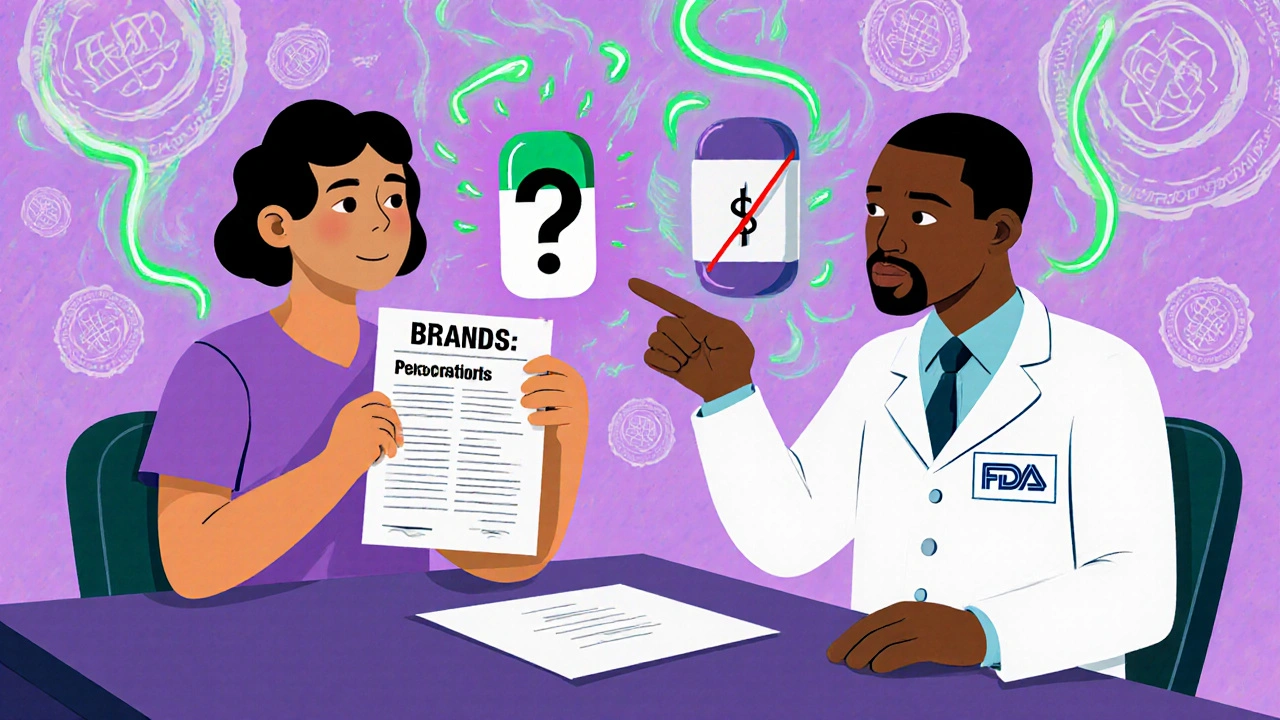
When your doctor hands you a prescription, you might not think twice about whether it’s the brand-name version or the generic. But here’s the thing: generic medication isn’t a cheaper copy-it’s the same medicine, just without the marketing. And if you’re paying out of pocket, that difference can be huge. The average generic drug costs 80-85% less than its brand-name counterpart. For some people, that’s $45 less per prescription. For others, it’s the difference between taking their medicine every day or skipping doses because they can’t afford it.
What’s the Real Difference Between Generic and Brand-Name Drugs?
Many patients assume brand-name drugs are stronger, safer, or more effective. They’re not. The U.S. Food and Drug Administration (FDA) requires that generic medications contain the exact same active ingredient, in the same strength, and work the same way in your body as the brand-name version. That means if you’re taking a generic version of lisinopril for high blood pressure, it’s chemically identical to the brand-name Zestril. Same molecule. Same effect. Same risks.
The only differences are in the inactive ingredients-things like dyes, fillers, and flavorings. That’s why a generic pill might be a different color or shape. It’s also why the packaging looks different. But none of that changes how the medicine works. The FDA requires generics to be bioequivalent, meaning they’re absorbed into your bloodstream at the same rate and to the same extent as the brand-name drug. Studies show the average difference in absorption is just 3.5%, well within the FDA’s 20% acceptable range.
Even for drugs where small changes can matter-like warfarin for blood thinning or levothyroxine for thyroid conditions-approved generics are just as safe and effective. The FDA doesn’t make exceptions. If a generic passes their review, it’s cleared for use. And they monitor them just as closely as brand-name drugs.
Why Do Brand-Name Drugs Cost So Much More?
The price gap isn’t about quality. It’s about patents and profit. When a drug company invents a new medicine, they get a 20-year patent. During that time, they’re the only ones allowed to sell it. They use that window to recoup the cost of research, marketing, and clinical trials. Once the patent expires, other companies can make the same drug. They don’t have to repeat expensive trials. They just prove their version works the same way. That’s why generics can be sold for pennies on the dollar.
In the U.S., 9 out of 10 prescriptions filled are for generic drugs. But brand-name drugs still make up about 75% of total prescription spending. Why? Because they’re priced way higher. A 30-day supply of a brand-name statin might cost $150. The generic? $10. That’s not a minor difference-it’s life-changing for people on fixed incomes.
Between 2007 and 2016, generic drugs saved the U.S. healthcare system over $1.67 trillion. That’s money that didn’t go to insurance companies, pharmacies, or patients. That’s money that kept people from choosing between their medicine and their groceries.
When Might You Need the Brand-Name Version?
Most of the time, you don’t. But there are rare cases where a doctor might recommend sticking with the brand. These are usually drugs with a narrow therapeutic index-medications where even tiny changes in blood levels can cause problems. Examples include seizure medications like phenytoin, thyroid meds like levothyroxine, and blood thinners like warfarin.
Even here, the FDA says approved generics are safe. Some doctors still prefer brand-name versions out of habit or because they’ve seen patients report changes after switching. But research doesn’t back up those concerns. A 2016 study in the New England Journal of Medicine looked at patients switching between generic and brand-name warfarin. It found minor fluctuations in INR levels-but nothing that led to more bleeding or clots. Other studies since then have found the same.
What you might be feeling isn’t always the medicine. If you’ve always taken a blue pill and suddenly get a white one, your brain might tell you it’s not working. That’s the nocebo effect-the opposite of placebo. It’s real. It affects how you feel. But it’s not the drug changing. It’s your perception.
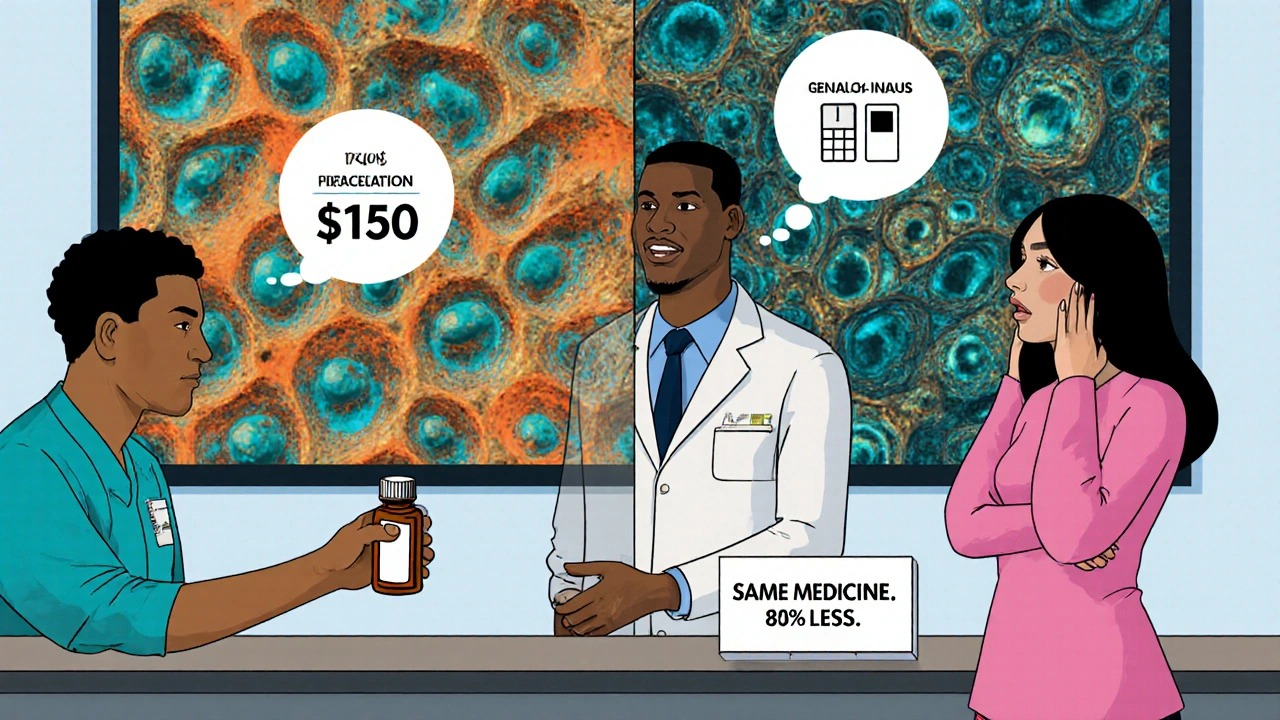
What to Say to Your Doctor
Don’t wait for your doctor to bring it up. Ask. Here are three simple questions you can use:
- Is there a generic version of this medication?
- Will it work just as well for my condition?
- Is there any reason I should take the brand-name version instead?
If your doctor says no to generics, ask why. Is it because of your specific health history? Or because they’ve always prescribed it that way? Don’t be afraid to push back gently. You’re not being difficult-you’re being informed.
Also, tell your doctor if cost is a problem. Many doctors don’t know how much you’re paying out of pocket. If you say, “I can’t afford this,” they might switch you to a cheaper option-even if it’s not generic. Some brand-name drugs have patient assistance programs. Others have coupons. But they won’t know unless you tell them.
What Happens When the Pharmacy Substitutes the Generic?
In most states, pharmacists are legally required to substitute a generic drug if it’s available-unless your doctor wrote “dispense as written” on the prescription. That means even if you asked for the brand-name version, the pharmacy might still give you the generic. That’s not a mistake. It’s the law.
That’s why it’s important to know what you’re getting. Always check the label. If the name looks different, ask the pharmacist. They’re trained to explain the difference. In fact, 78% of patient concerns about generics are resolved just by talking to the pharmacist.
If you’ve had a bad reaction to a generic before-like a rash, nausea, or feeling off-tell your doctor and pharmacist. It’s rare, but possible. Some people are sensitive to certain inactive ingredients. That’s not the drug failing. It’s your body reacting to something else in the pill. Your doctor can note that in your file so you’re not switched again.
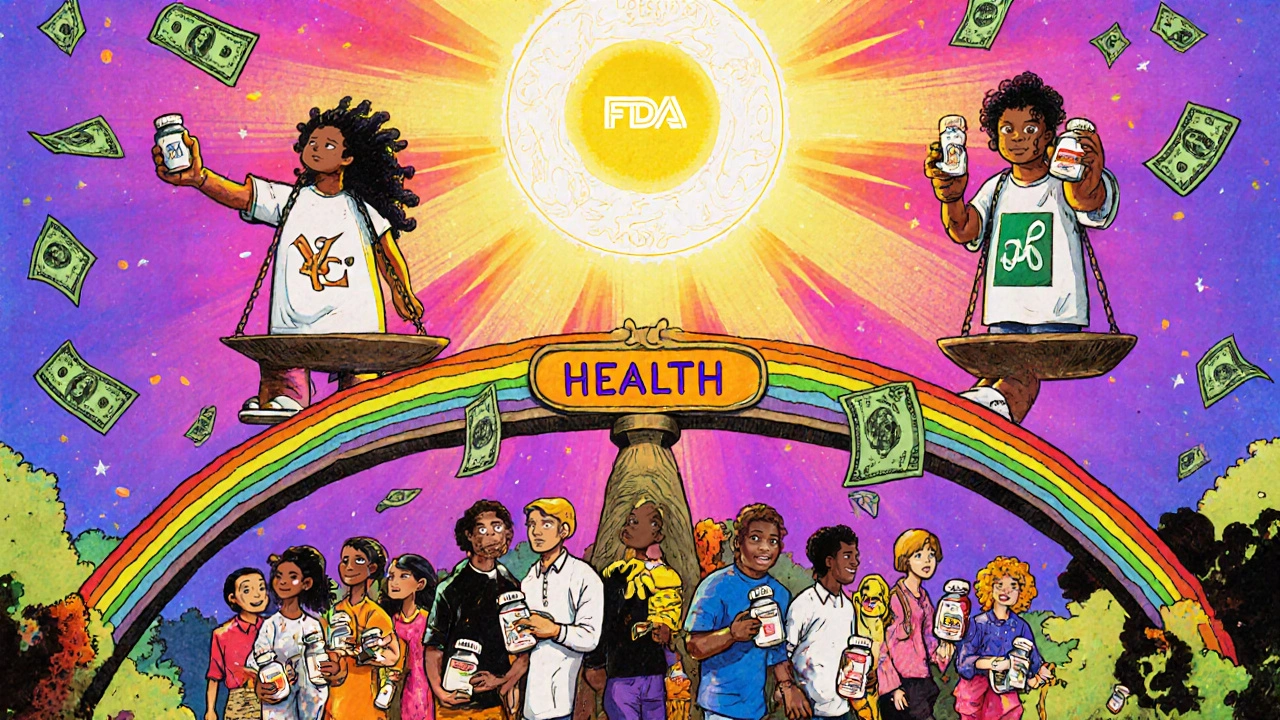
What About Biologics and Biosimilars?
Not all complex drugs have generics. Biologics-like insulin, rheumatoid arthritis drugs, or cancer treatments-are made from living cells. They’re too complex to copy exactly. Instead, we have biosimilars. These are highly similar, but not identical. They’re still cheaper than the brand, but not as cheap as regular generics.
Right now, only about 28% of biologic prescriptions are filled with biosimilars. That’s changing fast. More are being approved every year. And they’re just as safe. The FDA requires the same level of testing. If your doctor prescribes a biologic, ask if a biosimilar is an option. You might save hundreds a month.
What Patients Really Think
Surveys show 89% of people who switch from brand-name to generic drugs report no difference in how they feel. That’s the data. But online forums like Reddit sometimes tell a different story. Some users say their seizures got worse after switching. Others say their depression got worse.
Here’s the catch: these are rare. And often, they’re tied to switching between different generic manufacturers-not from brand to generic. A patient might take one generic version for months, then get a new batch from a different company. Even though both are FDA-approved, the inactive ingredients might vary slightly. For most people, that’s nothing. For a small number, it can trigger a reaction.
If you notice a change after switching generics, don’t assume the medicine stopped working. Talk to your pharmacist. They can tell you if the manufacturer changed. If you’re concerned, your doctor can request the same generic version each time.
Bottom Line: Ask, Don’t Assume
Generic medication isn’t second-rate. It’s the same medicine, sold at a fraction of the price. For most people, it’s the smartest choice. But you won’t know unless you ask. Your doctor isn’t trying to upsell you. They’re focused on your health. But they can’t read your bank account.
Next time you get a prescription, take a breath. Ask the questions. Check the label. Talk to the pharmacist. You’re not being pushy. You’re being responsible. And you might just save yourself hundreds-or even thousands-of pounds a year.
The bottom line? Your health doesn’t depend on the brand on the bottle. It depends on you taking the medicine. And generics make that possible for far more people.
Are generic medications as safe as brand-name drugs?
Yes. The FDA requires generic drugs to meet the same strict standards for safety, strength, quality, purity, and performance as brand-name drugs. They use the same active ingredients and are tested to ensure they work the same way in your body. Generic drugs are monitored just as closely after they’re on the market.
Why do generic pills look different from brand-name ones?
U.S. trademark laws prevent generic drugs from looking exactly like the brand-name version. That means the shape, color, or size may be different. But the active ingredient is the same. These differences don’t affect how the drug works-only how it looks or tastes.
Can I ask my doctor to prescribe only brand-name drugs?
Yes, you can ask. But your doctor will likely ask why. If cost isn’t an issue and there’s no medical reason to avoid generics, they’ll usually recommend the generic to save you money. If you have a history of reacting to a specific generic, or if your condition is very sensitive (like epilepsy or thyroid disease), they may write “dispense as written” on the prescription.
Why does my pharmacy sometimes give me a different generic than last time?
There are often multiple generic manufacturers for the same drug. Pharmacies choose based on price and availability. Switching between generics is common and safe for most people. But if you notice a change in how you feel, let your pharmacist know. They can check if the manufacturer changed and help you request the same one next time.
Do generics take longer to work than brand-name drugs?
No. Generic drugs must be bioequivalent, meaning they enter your bloodstream at the same rate and to the same extent as the brand-name version. Any perceived delay is usually psychological-like noticing the pill looks different. Studies show no meaningful difference in how quickly generics start working.
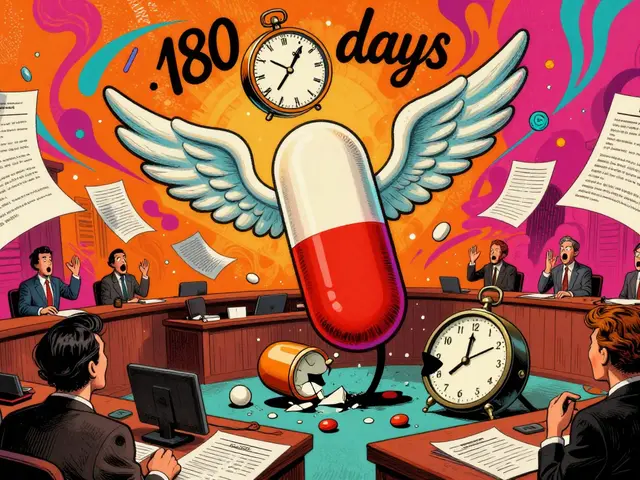

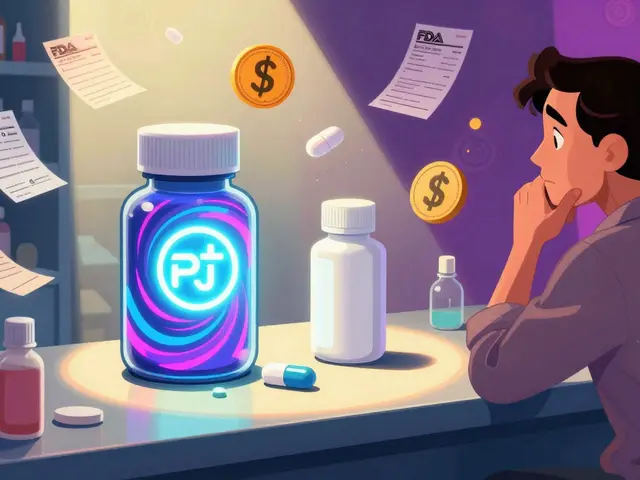
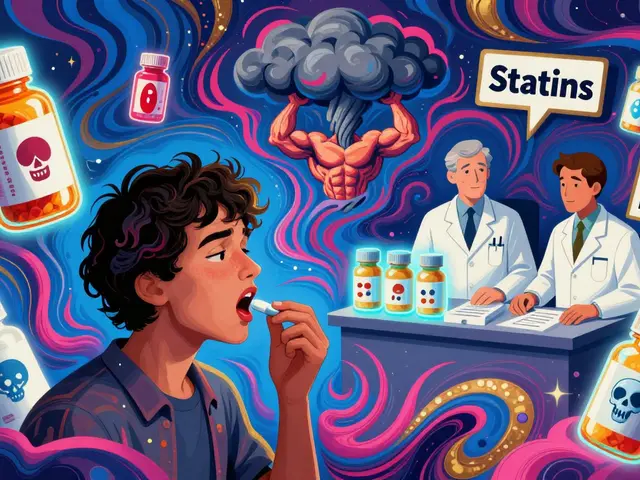
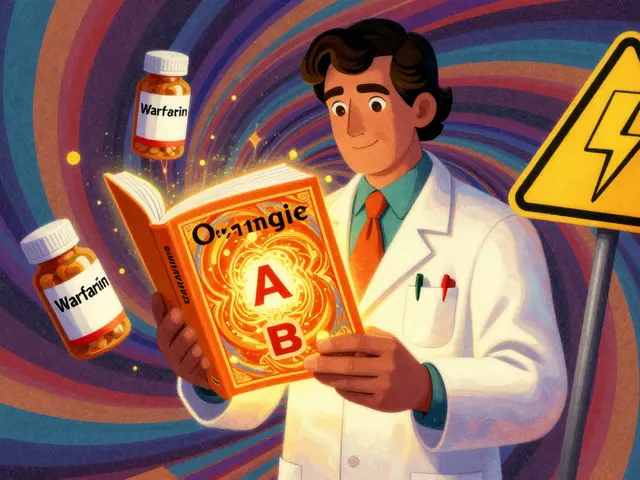
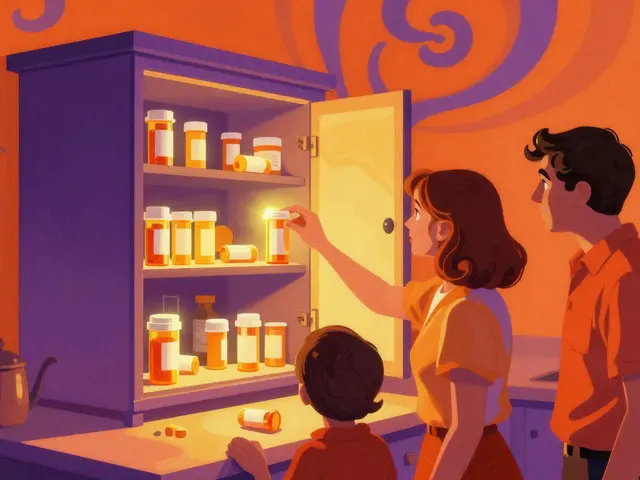
Erika Hunt
November 25, 2025 AT 07:53Look, I get that generics are cheaper, but I’ve been on the same thyroid med for 12 years, and when my pharmacy switched me to a different generic last year, I started having heart palpitations at 3 a.m.-like, actual, terrifying, can’t-breathe palpitations. I went back to the brand, and boom, everything stabilized. I’m not anti-generic-I’m pro-stability. And if your doctor doesn’t listen when you say ‘this feels different,’ find a new one.
Sharley Agarwal
November 25, 2025 AT 11:59India makes 80% of the world’s generics. You think your $5 pill is safe? Good luck.
Pallab Dasgupta
November 26, 2025 AT 13:43Bro, I switched from brand-name Lipitor to generic atorvastatin and saved $120/month. My cholesterol dropped the same. My bank account didn’t cry. My doctor didn’t even blink. If you’re scared of generics, you’re scared of capitalism-and that’s fine. But don’t let fear keep you from your meds.
Kimberley Chronicle
November 27, 2025 AT 08:29It’s worth noting that bioequivalence thresholds (20% AUC/Cmax variability) are conservative by design-especially for drugs with narrow therapeutic indices. While the FDA’s standards are robust, real-world pharmacovigilance data suggests that inter-generic switching (not brand-to-generic) is the primary driver of patient-reported adverse events. This is why some clinicians still advocate for therapeutic consistency, particularly in polypharmacy populations.
giselle kate
November 29, 2025 AT 02:57Generic drugs are the result of American innovation being exploited by foreign manufacturers who don’t pay for R&D. We spent billions to create these drugs, and now China and India are selling them for pennies while we pay for our own healthcare. This isn’t economics-it’s betrayal. If you want real savings, stop buying foreign generics and demand American-made medicine.
Shirou Spade
November 30, 2025 AT 05:06There’s a deeper truth here: we’ve been taught to equate price with value. A white pill is ‘lesser’ because it doesn’t have a logo. But medicine isn’t a brand-it’s chemistry. The real tragedy isn’t the cost difference-it’s that we’ve lost trust in science because we’ve been sold a myth. The pill doesn’t care who made it. Your body only cares if it works.
Lisa Odence
December 2, 2025 AT 04:56OMG I JUST HAD TO SWITCH TO A GENERIC FOR MY ANTI-DEPRESSANT AND I FELT LIKE I WAS BEING SUCKED INTO A BLACK HOLE FOR TWO WEEKS 😭😭😭 My pharmacist said ‘it’s the same!’ but my brain was like NOPE. I went back to brand and now I’m crying happy tears 🥹💊 #GenericTrauma #NotAllGenericsAreEqual #MyMoodIsNotAMarketExperiment
fiona collins
December 3, 2025 AT 01:14My mom switched to generic warfarin after her cardiologist insisted. She had a minor bleed. The pharmacist found the manufacturer changed. They switched her back to the original generic. No issues since. Always ask about the manufacturer. It matters more than you think.
Emily Craig
December 4, 2025 AT 15:31So let me get this straight-you’re telling me a $10 pill from a factory in Bangalore is just as good as the $150 one made in New Jersey? Cool. I’ll just keep paying extra so my money stays in America. And yes, I’m aware I’m the villain in this story. 🤷♀️
Karen Willie
December 5, 2025 AT 06:32I’ve worked in community health for 18 years. I’ve seen people skip doses, split pills, or go without because they can’t afford the brand. Generics aren’t perfect-but they’re the reason someone with diabetes is still alive today. Don’t shame people for choosing the cheaper option. Shame the system that makes them choose at all.
prasad gaude
December 5, 2025 AT 22:37In India, we grow our own opium poppies. We make morphine. We make antibiotics. We make insulin. We don’t have patents here-we have purpose. When your son needs insulin and your paycheck ends Friday, you don’t care if it’s branded or generic. You care if it works. Maybe America needs to learn that medicine isn’t a product. It’s a right.